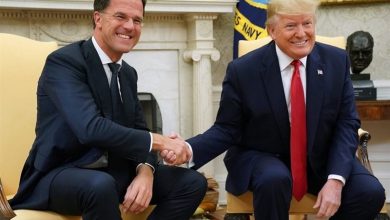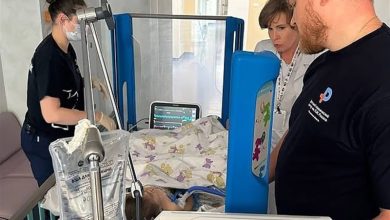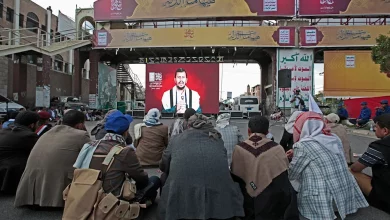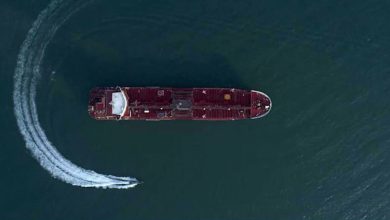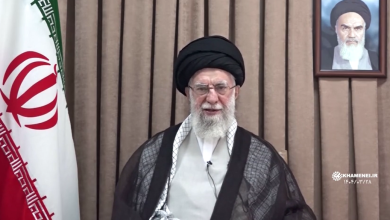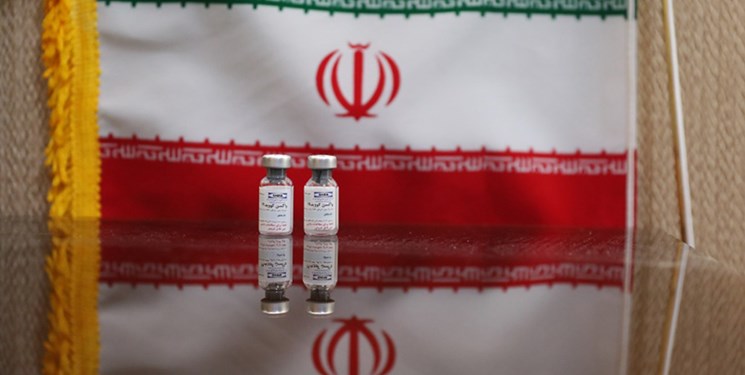
Head of Pasteur Institute of Iran Alireza Biglari announced on Wednesday that the coronavirus vaccine produced by the Institute has passed the first and second human trial phases and will be mass-produced by the end of spring after a successful third phase.
“Since the vaccine has passed phases 1 and 2 and its effectiveness has been proved, as soon as we enter the third phase and its results are verifiably positive, we will enter the production phase,” Biglari said.
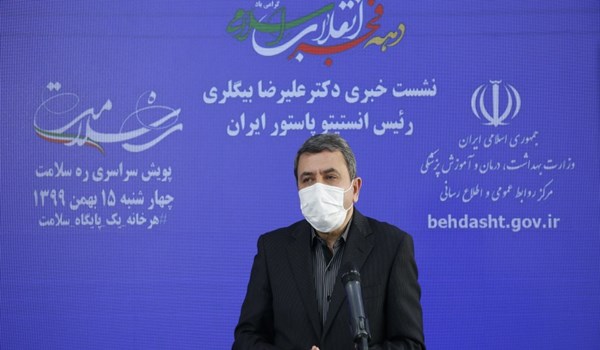
He noted that everything has been prepared for production of the vaccine, and said, “We hope to be able to mass-produce the vaccine in May or June.”
Biglari said that the capacity in the early months of production will be around 1 to 2 million, but it will increase over time.
Also, in January, Biglari said that the country’s home-made vaccines will be ready for the nation’s vaccination late in spring if they pass all tests successfully.
“The Health Ministry is trying to provide the necessary vaccines from foreign sources for priority groups; also, really good efforts are being made to produce domestically-produced vaccines and co-produce them with other countries,” Biglari said.
“But regarding the domestically-produced vaccines, the most optimistic case is that we can have the domestically-produced vaccines for public vaccination in June if all plans succeed,” he added.
Biglari explained that Iran’s vaccine produced jointly with foreign states will go for extensive human trial phase in March, while public vaccination could start in June.
In addition to importing vaccine from other countries, different Iranian companies are producing coronavirus vaccines.
The second stage of the first phase of the human trial of Iran-made COV-Pars coronavirus vaccine, produced by Razi Institute, is due to be conducted on 120 new volunteers on Tuesday.
Saeed Kalantari, the head researcher of the clinical trial of the COV-Pars vaccine, made the remarks on Monday.
“The vaccine was injected to 13 people last week, including 10 men and 3 women, and so far no adverse reactions have been witnessed in these pioneers. No side effects have been reported except for minor pain at the injection spot,” he said.
“We need more time to assess the effectiveness of the vaccine, and now the second stage of the first phase will begin on Tuesday with injection to 120 people,” Kalantari said.
He said the second stage of the first phase is expected to complete by May, adding that the second phase will be carried out on 500 volunteers after receiving the needed licenses.
Also, Deputy Head of Iran’s Biological Defense Base Mohammad Kariminia said on Sunday that the country’s newly-developed coronavirus vaccine named after martyred nuclear scientist Mohsen Fakhrizadeh has received the license for human trial phase.
“License for entering the human trial phase of Shahid Fakhrizadeh coronavirus vaccine has been received,” Kariminia told FNA on Sunday.
“In the first phase, the vaccine will be tested on 135 volunteers. The vaccine is of deactivated virus type,” he added.
Kariminia said that the vaccine will be mass-produced possibly in August after passing 3 phases of human trial.
Head of Iran’s Headquarters for Executing the Order of Imam (Khomeini) Coronavirus Research Team Hassan Jalili said last Tuesday that HEIKO’s scientists are working on production of 6 types of coronavirus vaccine, adding that 10mln doses of the vaccine will be ready in spring.
“We have 6 vaccines, including an inactivated vaccine, a DNA vaccine, an MRNR vaccine, a subunit vaccine, a mesenchymal vaccine and a measles vaccine,” Jalili told FNA.
He added that the first phase of the human trial of one of these vaccines is nearing completion, and noted, “The documents of the DNA-based vaccine will probably be delivered to the Health Ministry in a few days; the rest of the vaccines are in the preclinical stage.”
“We have anticipated a monthly production of more than 10 million doses in spring,” Jalili said.
Senior member of Iran’s National Task Force for Fighting COVID-19 Minou Mohraz said last month that the indigenized coronavirus vaccine, COV-Iran, has been produced by the Iranian scientists at the HEIKO based on world standards.
“We have different types of vaccine but COV-Iran has been produced based on international standards and quality,” Mohraz, also a senior member of the team to assess the efficiency of the Iran-made vaccine, said.
She added that all the relevant protocols are being met in the production of COV-Iran, saying that there are few vaccines which meet all the protocols.
Iranian Health Minister Saeed Namaki said last month that the country will start mass-production of its home-made coronavirus vaccine in April, adding that Iran will start vaccine exports after satiating domestic needs.
“We anticipate production of the national vaccine to start in April and we will turn into an exporter of the vaccine in the region after meeting internal needs,” Namaki said.
He, meantime, underlined continued imports of COVID-19 vaccine, adding that 250,000 doses of the vaccine will be imported soon.
Namaki also warned of the high fatality rate reported in Iran by infection to the British coronavirus mutation, and further blasted the British for attempts to downplay the power of the new virus.
Jalili announced in February that Tehran is holding negotiations with 3 countries to export its home-made COVID-19 vaccine.
“5 world states have demanded to purchase the Iran-made vaccine. 3 countries are in negotiations and 2 others have demanded talks,” Jalili told reporters in a press conference, but declined to name the three states.
Meantime, Director of the Clinical Trial Center of Tehran University of Medical Sciences Seyed Hamed Hosseini said that final results of the first phase of the clinical trial of COV-Iran Barekat vaccine will be declared on March 4, adding that the second and third phases will be carried out with participation of 400 and nearly 20,000 volunteers, respectively.
Chairman of the Headquarters for Executing Imam Khomeini’s Order Mohammad Mokhber had underlined last month the capability of the Iran-made vaccine to deactivate the new British coronavirus, saying that the country hopes that the vaccine can also resist against other types of COVID-19 virus mutations.
“The Iranian vaccine has shown very excellent performance against the mutated coronavirus spreading in Britain and we hope that the Iran-made vaccine will succeed in confronting the future mutations of the coronavirus too,” Mokhber said.
He added that infrastructures and facilities have been prepared to mass-produce the Iran-made coronavirus vaccine, adding that the country will be ready to produce 12mln to 14mln doses of the vaccine in mid spring.
Mokhber said that a number of world states have demanded to purchase the Iran-made vaccine, stressing that the Iranian citizens are a priority to receive the vaccine.
Namaki said in February that the country will turn into a center for production of coronavirus vaccine in spring given the successful results of the human trial of its home-made vaccines.
“Our country will become one of the poles to produce coronavirus vaccine next spring,” Namaki said.
He stressed the successful results of the human trial of Iran-made coronavirus vaccines, and said, “We are vigorously pursuing the indigenous vaccine, and we import both the COVAX vaccines and vaccines from the safest sources.”

